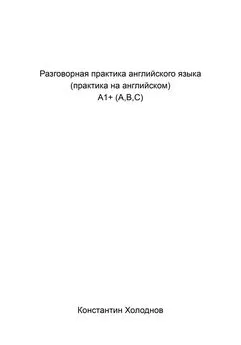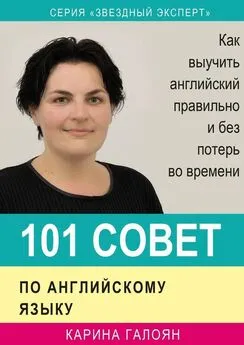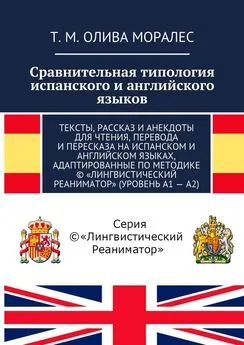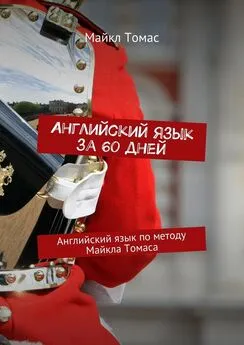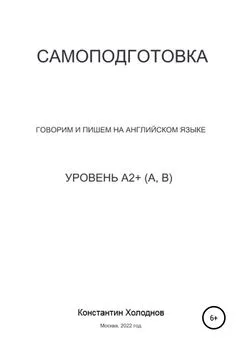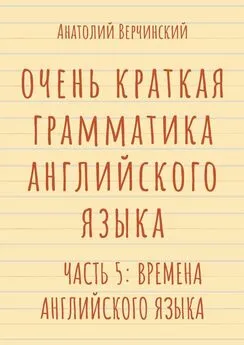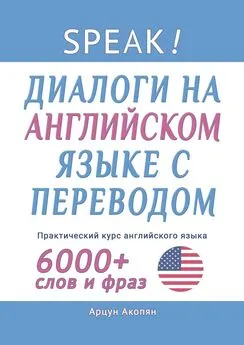Константин Холоднов - Разговорная практика английского языка. Практика на английском. A1+ (A,B,C)
- Название:Разговорная практика английского языка. Практика на английском. A1+ (A,B,C)
- Автор:
- Жанр:
- Издательство:неизвестно
- Год:2022
- ISBN:нет данных
- Рейтинг:
- Избранное:Добавить в избранное
-
Отзывы:
-
Ваша оценка:
Константин Холоднов - Разговорная практика английского языка. Практика на английском. A1+ (A,B,C) краткое содержание
Разговорная практика английского языка. Практика на английском. A1+ (A,B,C) - читать онлайн бесплатно ознакомительный отрывок
Интервал:
Закладка:
The area around /əˈraʊnd/ (о/э) my village /ˈvɪlɪdʒ/ is a dangerous /ˈdeɪndʒərəs/ (э,э/а) place /pleɪs/.
arm noun /ɑːm/ рука; рукав
• A1 either of the two long parts that stick out from the top of the body and connect the shoulders to the hands
(Я, Г: Он отделался только сломанной рукой.)
Он сбежал с только сломанной рукой*.
*either of the two long parts that stick out from the top of the body and connect the shoulders to the hands
He escaped /ɪˈskeɪpt/ with /wɪð/ only /ˈoʊnli/ a broken /ˈbroʊkən/ (э) arm.
(Я, Г: Они шли рука об руку)
Они шли* вперёд/вместе_(с кем-то)/к_лучшему_состоянию_или_положению рука в руке.
*[intransitive, transitive] to move or go somewhere by putting one foot in front of the other on the ground, but without running
They walked /wɔːkt/ along /əˈlɒŋ/ (э) arm in arm (= with the arm of one person linked with the arm of the other).
(Я, Г: Она нежно коснулась его руки.)
Она прикоснулась/коснулась/дотронулась/тронула его осторожно/нежно/мягко/тихо/спокойно/кротко* по руке.
*in a way that is soft and light, not strong, extreme or violent
*in a calm, kind and quiet way
*in a way that slopes very gradually
She touched /tʌtʃt/ him gently /ˈdʒentli/ on the arm.
• A1 the part of a piece of clothing that covers the arm
SYNONYM sleeve /sliːv/ рукав
(Рукава нужно будет укоротить.)
Рукава* будут иметь_потребность укорачивания/сокращения.
*the part of a piece of clothing that covers the arm
The arms /ɑːmz/ will /wɪl/ need /niːd/ shortening /ˈʃɔːtnɪŋ/.
Попробуйте придумать фразу со словом arm . Я вот такую придумал: The dinosaur /ˈdaɪnəsɔː(r)/ (э) has short /ʃɔːt/ arms.
around preposition /əˈraʊnd/ (о/э) вокруг; за, из-за; по
(especially North American English)
(British English usually round/raʊnd/)
• A1 surrounding somebody/something; on each side of something
(Я: Дом построен вокруг центрального внутреннего двора.)
Дом есть построенный вокруг* центрального внутреннего_двора**.
*surrounding somebody/something; on each side of something
**an open space that is partly or completely surrounded by buildings and is usually part of a castle, a large house, etc.
The house /haʊs/ is built /bɪlt/ around a central /ˈsentrəl/ (о) courtyard /ˈkɔːtjɑːd/.
• A1 on, to or from the other side of somebody/something
Наш дом есть просто/прямо/точно* за** углом.
*simply
*by a small amount
*exactly
**on, to or from the other side of somebody/something
Our house /haʊs/ is just /dʒʌst/ around the corner /ˈkɔːnə(r)/ (а).
Автобус приехал из-за изгиба*.
*[countable] a curve or turn, especially in a road or river
The bus /bʌs/ came /keɪm/ around the bend /bend/.
• A1 in a circle
(Г: Они гуляли вокруг озера.)
Они шли* вокруг** озера.
*[intransitive, transitive] to move or go somewhere by putting one foot in front of the other on the ground, but without running
**in a circle
They walked /wɔːkt/ around the lake /leɪk/.
• A1 in or to many places in an area
(Г: Они ходили по городу в поисках места, где можно поесть.)
Они шли по* городку** смотрящие/глядящие для (находясь в поиске) места есть/кушать.
*in or to many places in an area
**[countable, uncountable] a place with many houses, shops, etc. where people live and work. It is larger than a village but smaller than a city.
They walked /wɔːkt/ around the town /taʊn/ looking /ˈlʊkɪŋ/ for a place /pleɪs/ to eat /iːt/.
Попробуйте придумать фразу с предлогом around . Я вот такую придумал:
The roses /ˈroʊzɪz/ are planted /ˈplɑːntɪd/ around my house /haʊs/.
oxfordlearnersdictionaries.com:
around / round / about
1. Aroundand roundcan often be used with the same meaning in British English, though aroundis more formal:
• The earth goes round/around the sun.
• They live round/around the corner.
• We travelled round/around India.
• She turned round/around when I came in.
In North American English only aroundcan be used in these meanings.
2. Around, roundand aboutcan also sometimes be used with the same meaning in British English:
• The kids were running around/round/about outside.
• I’ve been waiting around/round/about to see her all day.
In North American English only aroundcan be used in these meanings. Aboutor aroundcan be used in both British English and North American English to mean ‘approximately’:
• We left around/about 8 o’clock.
around adverb /əˈraʊnd/ (о/э) приблизительно, примерно, около; вокруг, кругом; в окружности
• A1 approximately
(Г: Он прибыл около пяти часов.)
Он прибыл/приехал приблизительно/примерно/около* 5 часов.
*approximately
He arrived /əˈraɪvd/ (о) around five /faɪv/ o'clock /əˈklɒk/ (э).
Там были только приблизительно/примерно/около 125 людей присутствующих*.
*[not before noun] (of a person) being in a particular place
There were only around 125 /wʌn/ /ˈhʌndrəd/ (э/и) /ənd/ (э) /ˈtwenti/ /faɪv/ people present /ˈpreznt/.
• A1 on every side; surrounding somebody/something
(Я: Я слышал смех повсюду вокруг.)
Я мог слышать смех всё вокруг/кругом* (со всех сторон).
*on every side; surrounding somebody/something
I could /kʊd/ hear /hɪə(r)/ (а) laughter /ˈlɑːftə(r)/ (а) all /ɔːl/ around.
(Я, Г: двор с забором вокруг)
двор* с забором весь вокруг/кругом (со всех сторон)
*(North American English)(British English garden) a piece of land next to or around your house where you can grow flowers, fruit, vegetables, etc., usually with a lawn (= an area of grass)
*(British English) an area outside a building, usually with a hard surface and a surrounding wall
a yard /jɑːd/ with /wɪð/ a fence /fens/ all /ɔːl/ around
• A1 (especially North American English)(British English usually round) moving in a circle
(Я: Как вы заставляете колеса вращаться?)
Как вы заставляете колёса идти/ходить двигаясь_в_круге*?
*(especially North American English)(British English usually round) moving in a circle
How /haʊ/ do you make /meɪk/ the wheels /wiːlz/ go around?
• A1 (especially North American English)(British English usually round) in a circle or curve to face another way or the opposite way
(Я: Они оглянулись, когда он позвонил.)
Они посмотрели вокруг/кругом* когда он позвонил.
*(especially North American English)(British English usually round) in a circle or curve to face another way or the opposite way
They looked /lʊkt/ around when /wen/ he called /kɔːld/.
• A1 (especially North American English)(British English usually round) measured in a circle
(Я: старое дерево, окружность которого была не менее десяти футов)
старое дерево что/которое было при наименьшем (по меньшей мере/по крайней мере) 10 футов в_окружности*
*(especially North American English)(British English usually round) measured in a circle
an old /oʊld/ tree /triː/ that was /wɒz/ at least /liːst/ ten feet /fiːt/ around
• A1 in or to many places
(Я, Г: Это наш новый офис – Кей покажет вам его.)
Это есть наш новый офис – Кай(Кэй) будет показывать тебе вокруг/кругом*.
*in or to many places
This is our new /njuː/ office /ˈɒfɪs/ – Kay /keɪ/ will /wɪl/ show /ʃoʊ/ you around.
• A2 used to describe activities that have no real purpose
(Я, Г: Вокруг сидело несколько молодых людей со скучающим видом.)
Там были несколько* молодых/юных людей сидящих вокруг** выглядящих скучающими***.
*more than two but not very many
**описываем действия, которые не имеют реальной цели
***feeling tired and impatient because you have lost interest in somebody/something or because you have nothing to do
There were /wɜː(r)/ several /ˈsevrəl/ (о) young /jʌŋ/ people /ˈpiːpl/ sitting /ˈsɪtɪŋ/ around looking /ˈlʊkɪŋ/ bored /bɔːd/.
• A2 present in a place; available
(Я, Г: Она должна быть где-то здесь.)
Она должна быть где-то/где-нибудь* около/вокруг(присутствовать на месте; иметься в наличии)** здесь/тут.
*(North American English also someplace) in, at or to a place that you do not know or do not mention by name
**present in a place; available
She must /mʌst/ be somewhere /ˈsʌmweə(r)/ (а) around here /hɪə(r)/ (а).
Попробуйте придумать фразу с наречием around . Я вот такую придумал:
The cost /kɒst/ of my book is around 1000 /wʌn/ /ˈθaʊznd/ roubles /ˈruːblz/.
arrive verb /əˈraɪv/ (о) прибывать, прибыть
• A1 [intransitive] to get to a place, especially at the end of a journey
(Я, Г: Я подожду, пока они не приедут.)
Я буду ждать до/до_того_как они прибывают*.
*[intransitive] to get to a place, especially at the end of a journey
I'll /aɪl/ wait /weɪt/ until /ənˈtɪl/ (а/э), /ʌnˈtɪl/ they arrive.
прибывать/прибыть рано для встречи/заседания/собрания/митинга
to arrive early /ˈɜːli/ for a meeting /ˈmiːtɪŋ/
Читать дальшеИнтервал:
Закладка:
